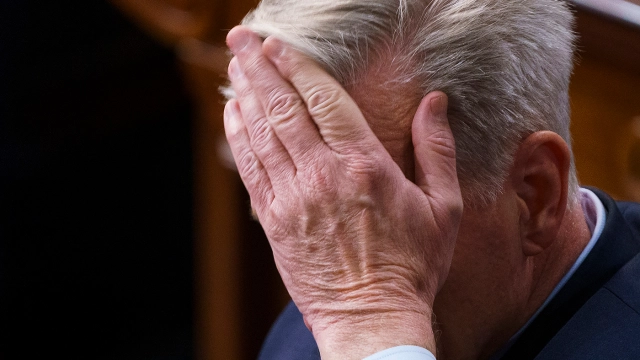On the second anniversary of Jan. 6, 2021, the nation still shifts through the debris of American democracy’s worst day. The House select committee on the Jan. 6 spent months investigating the insurrection and recommended to the Department of Justice that it bring criminal charges against former President Donald Trump related to instigating the Capitol invasion and his failure to act against it.
The tragic events of Jan. 6 are not ancient history, according to a recent national poll conducted by Morning Consult. Six out of every 10 Americans believe the federal government should continue to investigate the insurrection. Some of those involved have already been found guilty of seditious conspiracy, several trials are ongoing — and a majority of voters think the criminal penalties are fair or not harsh enough.
Trump’s candidacy for a second term is a living and breathing reminder of the events of that day. It was his refusal to accept the will of the voters in 2020 that set the invasion in motion, according to the committee’s investigation. Not surprisingly, most people believe he is responsible for the invasion of the Capitol.
The attack on the Capitol was an attack on the will of the people. The invaders who seized the house of the people reportedly wanted to keep Trump in office, despite President Joe Biden’s decisive victory over his GOP opponent among voters and in the Electoral College.
Democracy is still under siege. The sad saga of that fateful day did not begin or end with the invasion or the expulsion of insurrectionists. Twice in the last six presidential elections, the winner of the popular vote hasn’t reached the White House.
Today, the impasse in the U.S. House of Representatives over the election of the Speaker is another demonstration of the decline in our political institutions — with more than a dozen rounds of voting so far.
Job No.1 for the majority party is to pick a House Speaker. Three days in and Rep. Kevin McCarthy (R-Calif.) has been unable to secure the role despite a GOP majority in the chamber. The new GOP House majority had one job and couldn’t get it done without exposing the institutional anarchy that is at the party’s core. The difficulty Republicans have had choosing a Speaker of the House is a dramatic sign of the fragility of our political system and a symbol of its inability to effectively function as a legislative body in these troubled and turbulent times.
Majority rule is outdated in the Republican Party, and the “it’s my way or the highway” approach seen by his GOP defectors is their latest shiny object. Prominent obstacles to McCarthy’s bid for the Speaker’s chair include Republicans Reps. Lauren Boebert (R-Colo.), Matt Gaetz (R-Fla.) and Andy Biggs (R-Ariz.) — who were among the 147 GOP lawmakers who voted to overturn the election results, apparently championing the insurrectionists and Trump’s bid to undermine the Constitution and the rule of law. Gaetz even voted for Trump to be Speaker. This small group of agitators — as high as 21 throughout the Speakers ballot — have stymied the will of the GOP caucus. They failed to take down Biden, but they have already weakened McCarthy even if they aren’t able to depose him.
Two years after Jan. 6, democracy is in distress and the House is a total mess




